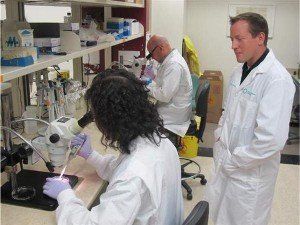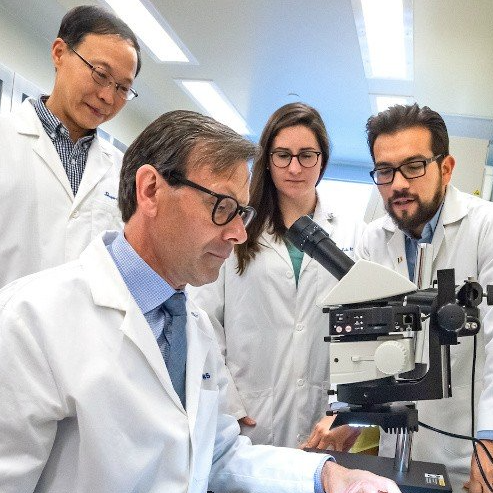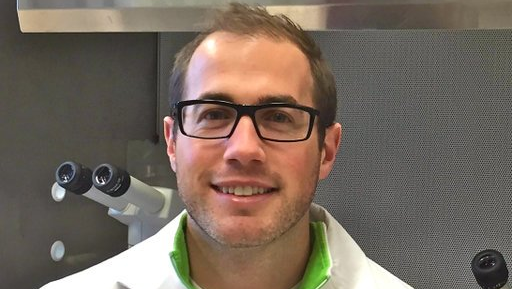NEWS

Committed to finding a cure in Alberta for the World
Committed to finding a cure in Alberta
for the World
Committed to finding a cure in Alberta for the World
ADF has been supporting ground-breaking diabetes research for decades. Thirty years ago, ADF invested in islet cell transplantation that led to the “Edmonton Protocol” — still an international standard of care. Today they are accelerating a path to finding a CURE. No more insulin, no more blood-sugar regulation, no more life-threatening complications.
ADF has been supporting ground-breaking diabetes research for decades. Thirty years ago, ADF invested in islet cell transplantation that led to the “Edmonton Protocol” — still an international standard of care. Today they are accelerating a path to finding a CURE. No more insulin, no more blood-sugar regulation, no more life-threatening complications.
Committed to finding a cure in Alberta for the World
ADF has been supporting ground-breaking diabetes research for decades. Thirty years ago, ADF invested in islet cell transplantation that led to the “Edmonton Protocol” — still an international standard of care. Today they are accelerating a path to finding a CURE. No more insulin, no more blood-sugar regulation, no more life-threatening complications.
Remove the Needle
No more Insulin. No more blood-sugar regulations. NO MORE NEEDLES!
Remove the Needle
No more Insulin.
No more blood-sugar regulations.
NO MORE NEEDLES!
Remove the Needle
No more Insulin.
No more blood-sugar regulations.
NO MORE NEEDLES!
REMOVING the NEEDLE ADF timeline Edmonton Protocol to a future CURE
REMOVING the NEEDLE ADF timeline Edmonton Protocol to a future CURE
REMOVING the NEEDLE ADF timeline
Edmonton Protocol to a future CURE
Current Project
INVESTING IN RESEARCH -
INVESTING IN A CURE
INVESTING IN RESEARCH -
INVESTING IN A CURE
Dr. Jean Buteau
Associate Professor, University of Alberta
Research Project
Beta Cell Regeneration
Set to being phase 2 clinical trials, this research encourages residual beta-cells in diabetes patients to proliferate, increasing cells that can make insulin.
Dr. Andrea Haqq
Professor, Adjunct Professor
Department of Pediatrics,
Division of Pediatric Endocrinology/ Metabolism
Research Project
Gut Microbiome Clinical Project
This clinical research is testing a novel combination therapy for the prevention of T2 diabetes in high-risk teens with obesity.
Dr. Colin Anderson
Professor, Faculty of Medicine & Dentistry - Surgery Dept
Research Project
Tuning the Immune System to Reverse Type 1 Diabetes
Dr. Anderson’s goal is to re-educate the immune system of people with type 1 diabetes to stop attacking islet cells, effectively reversing the disease.
Dr. James Shapiro
Professor, Faculty of Medicine & Dentistry - Surgery Dept
Research Project
Stem Cell Research
Research will test stem cells acquired from a diabetic patient that are engineered to be beta-cell insulin producing cells that do not trigger an autoimmune response.
Dr. Jason Dyck
Professor, Dir. Cardiovascular Research: Department of Pediatrics-Division of Pediatric Cardiology
Research Project
Resveratrol
Dr. Dyck and his team are studying resveratrol as a treatment option for type 2 diabetes.
Dr. Gregory Korbutt
Professor, Faculty of Medicine & Dentistry - Surgery Dept
Dr. Andrew Pepper
Assist. Professor, Faculty of Medicine & Dentistry-Surgery Dept
Research Project
Anti-rejection and Islet Cell Project
This research is developing anti-rejection drugs at a localized transplant site - Using neonatal porcine (pig) islets for transplantation provides a limitless and safe supply.
Dr. Pere Santamaria
Professor, Department of Microbiology Immunology and Infectious Diseases, University of Calgary
Research Project
Nanomedicines
A University of Calgary collaboration is using nanotechnology to suppress the auto-immune attack on insulin-producing beta cells.
Dr. Pere Santamaria
Professor, Department of Microbiology Immunology and Infectious Diseases, University of Calgary
Research Project
Nanomedicines
A University of Calgary collaboration is using nanotechnology to suppress the auto-immune attack on insulin
producing beta cells.
Dr. Gregory Korbutt
Professor, Faculty of Medicine & Dentistry - Surgery Dept
Dr. Andrew Pepper
Assist. Professor, Faculty of Medicine & Dentistry-Surgery Dept
Research Project
Anti-rejection and Islet Cell Project
This research is developing anti-rejection drugs at a localized transplant site - Using neonatal porcine (pig) islets for transplantation provides a limitless and safe supply.
Dr. Jean Buteau
Associate Professor, University of Alberta
Research Project
Beta Cell Regeneration
Set to being phase 2 clinical trials, this research encourages residual beta-cells in diabetes patients to proliferate, increasing cells that can make insulin.
Dr. James Shapiro
Professor, Faculty of Medicine & Dentistry - Surgery Dept
Research Project
Stem Cell Research
Research will test stem cells acquired from a diabetic patient that are engineered to be beta-cell insulin producing cells that do not trigger an autoimmune response.
Dr. Andrea Haqq
Professor, Adjunct Professor
Department of Pediatrics,
Division of Pediatric Endocrinology/ Metabolism
Research Project
Gut Microbiome Clinical Project
This clinical research is testing a novel combination therapy for the prevention of T2 diabetes in high-risk teens with obesity.
Dr. Mahua Ghosh
Associate Professor, Department of Medicine
Division of Endocrinology & Metabolism
Dr. Donna Vine
Associate Professor, Faculty of Agricultural, Life and Environmental Sci-Ag, Food & Nutri Sci Dep
Research Project
Polycystic Ovarian Syndrome and T2 Diabetes
Identifying young women, with PCOS, at risk of developing T2 Diabetes, introducing approaches for prevention that offer health benefits to both women and their unborn children.
Dr. Pere Santamaria
Professor, Department of Microbiology Immunology and Infectious Diseases, University of Calgary
Research Project
Nanomedicines
A University of Calgary collaboration is using nanotechnology to suppress the auto-immune attack on insulin
producing beta cells.
Dr. Gregory Korbutt
Professor, Faculty of Medicine & Dentistry - Surgery Dept
Dr. Andrew Pepper
Assist. Professor, Faculty of Medicine & Dentistry-Surgery Dept
Research Project
Anti-rejection and Islet Cell Project
This research is developing anti-rejection drugs at a localized transplant site - Using neonatal porcine (pig) islets for transplantation provides a limitless and safe supply.
Dr. Jean Buteau
Associate Professor, University of Alberta
Research Project
Beta Cell Regeneration
Set to being phase 2 clinical trials, this research encourages residual beta-cells in diabetes patients to proliferate, increasing cells that can make insulin.
Dr. James Shapiro
Professor, Faculty of Medicine & Dentistry - Surgery Dept
Research Project
Stem Cell Research
Research will test stem cells acquired from a diabetic patient that are engineered to be beta-cell insulin producing cells that do not trigger an autoimmune response.
Dr. Andrea Haqq
Professor, Adjunct Professor
Department of Pediatrics,
Division of Pediatric Endocrinology/ Metabolism
Research Project
Gut Microbiome Clinical Project
This clinical research is testing a novel combination therapy for the prevention of T2 diabetes in high-risk teens with obesity.
Dr. Mahua Ghosh
Associate Professor, Department of Medicine
Division of Endocrinology & Metabolism
Dr. Donna Vine
Associate Professor, Faculty of Agricultural, Life and Environmental Sci-Ag, Food & Nutri Sci Dep
Research Project
Polycystic Ovarian Syndrome and T2 Diabetes
Identifying young women, with PCOS, at risk of developing T2 Diabetes, introducing approaches for prevention that offer health benefits to both women and their unborn children.
The Alberta Diabetes Institute: A Leader in Diabetes Research
The Alberta Diabetes Institute: A Leader in Diabetes Research

The Alberta Diabetes Institute (ADI) is a world-class diabetes research facility, unique within Canada. The ADI provides desperately needed research space – all of which is aimed at finding a cure. As a world-class collaborative facility, ADI attracts and retains the very best research scientists and clinicians, while providing a training center for medical and graduate students who will be the leaders of tomorrow.
The 200,000 square foot Institute was established in 2007 as a stand-alone facility to consolidate the University’s outstanding collection of diabetes researchers and their trainees. We at the Alberta Diabetes Foundation support the Institute through research funding and support, so that breakthrough research is not stalled. The Institute offers state-of-the-art facilities in support of research that includes cellular and molecular studies, preclinical/clinical research, population health and health outcomes studies.
Clinical Trials: Participate in a Study
The Alberta Diabetes Institute’s Clinical Research Unit is a collaborative space where basic and clinical scientists work together to incorporate translational research. The Clinical Research Unit, along with skilled researchers and coordinators, provide a welcoming setting for participants to volunteer in ground-breaking research studies.
Find out more information on active clinical trials.
Clinical Trials: Participate in a Study
The Alberta Diabetes Institute’s Clinical Research Unit is a collaborative space where basic and clinical scientists work together to incorporate translational research. The Clinical Research Unit, along with skilled researchers and coordinators, provide a welcoming setting for participants to volunteer in ground-breaking research studies.
Find out more information on active clinical trials.
Studentships
Supporting the researchers of the future means that new, potentially life-changing diabetes research is being funded. Research proposals were reviewed and applicants were chosen based on a clear project outline with objectives that complement the ongoing research activities of the Supervisor. Awards are for a one-year term.
Studentships
Supporting the researchers of the future means that new, potentially life-changing diabetes research is being funded. Research proposals were reviewed and applicants were chosen based on a clear project outline with objectives that complement the ongoing research activities of the Supervisor. Awards are for a one-year term.
2021 Summer Studentships



LET'S WORK TOGETHER TO FIND A CURE.
VISIT US
1-020 Li Ka Shing Centre
University of Alberta
Edmonton, AB, T6G 2E1
Office Hours
Monday-Friday 8:30-4:00
If you would like to set up an appointment at our office, please set up an appointment by contacting us at
info@abdiabetes.com




